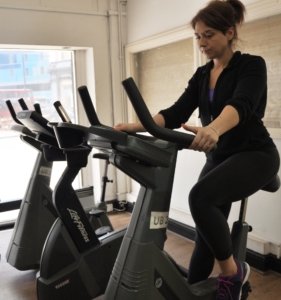Check out these Five Fitness Trends for 2018
Each year, fitness seems to be growing in popularity as a worldwide trend. People everywhere are realizing the benefits of maintaining an active lifestyle. According to a report by Statista, memberships at fitness centers / health clubs increased by more than 24 million between 2000 and 2016. As it continues to rise, new trends will emerge along the way.
What new fitness trends can you expect to see in 2018? A report by Walter R. Thompson in ACSM’s Health & Fitness Journal outlines somes of the most significant trends we can expect worldwide. To see the full list, click here.
Five Trends
1. HIIT (High-intensity interval training)

HIIT consists of short bursts of intense cardiovascular exercise followed by a lighter recovery perioud. This cycle continues until the participant feels sufficiently exhausted. A 2002 study from Laursen and Jenkins in Sports Medicine found that HIIT improved athletic capacity and metabolism. Researchers from China and Australia found HIIT regimens helped in significant fat reductions.
2. Group training

Humans are social creatures. We thrive when placed in a group, especially when that group is participating in an activity together. This is especially true of fitness. Go to any neighborhood fitness center or studio and you’ll find a plethora of group classes (yoga, biking, Pilates, kickboxing, and more). 2016 research from the American College of Sports Medicine showed that participants in group training may be less likely to quit due to factors like decreased boredom, social support, expert guidance and more. There are a wide variety of fitness classes available to suit nearly any taste.
3. Wearable technology

More and more, consumers are integrating their lives further with technology. This can be observed in the fitness realm, as well. Products like Apple Watch, FitBit and ilk offer advanced metrics tracking, displaying stats like heart rate, metabolism information, sleep patterns and more. These are poised to only increase in usage as fitness grows and the world becomes increasingly relient on technology for personalized metrics.
4. Body weight training

Many are realizing the benefits of body-training: no-cost, can be done at home, but still proven to be effective. A report from Brett Klika and Chris Jordan (ACMS) states that body weight circuit training appears to be an efficient solution for burning fat, improving insulin sensitivity, build muscle and improve cardiovascular functioning.
5. Strength training

Strength training may help you live a longer life. A 2016 study published in Preventive Medicine found that across a 15-year time span older adults who participated in strength training had a lower mortality rate than those who did not exercise. Strength training can be done as heavy or as light as you desire; high repetitions or low repetitions. It’s all up to you and whatever works best.













